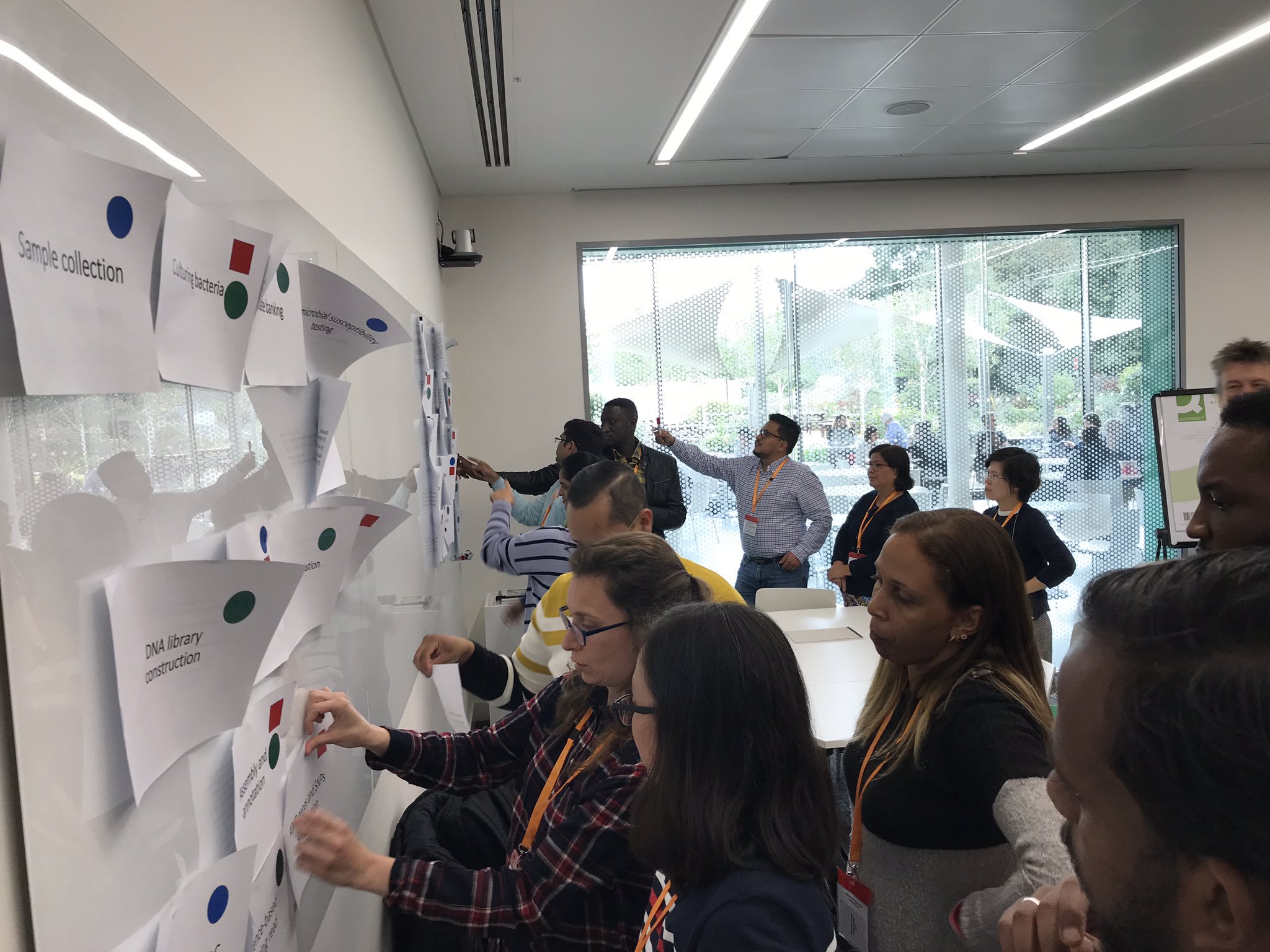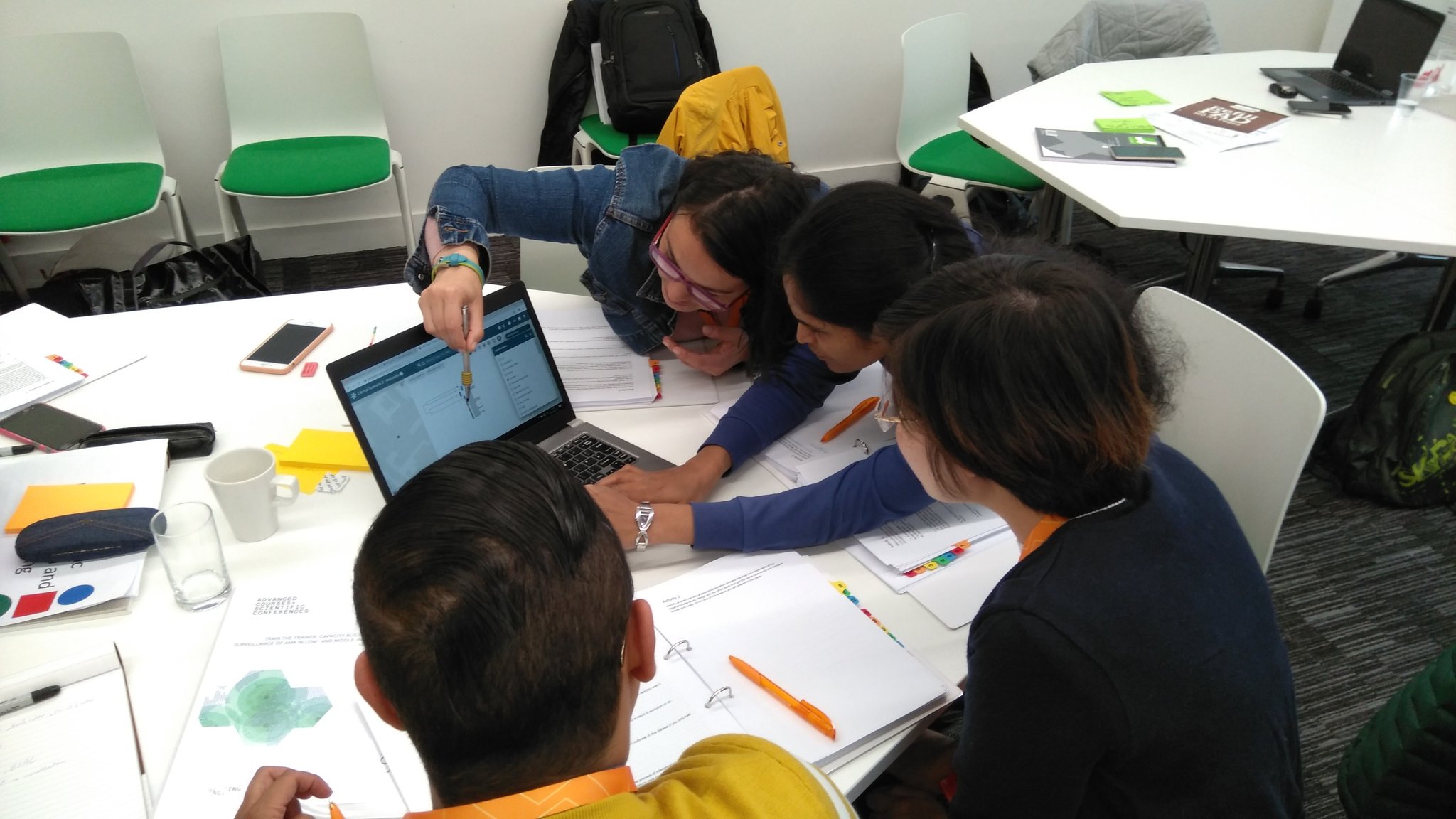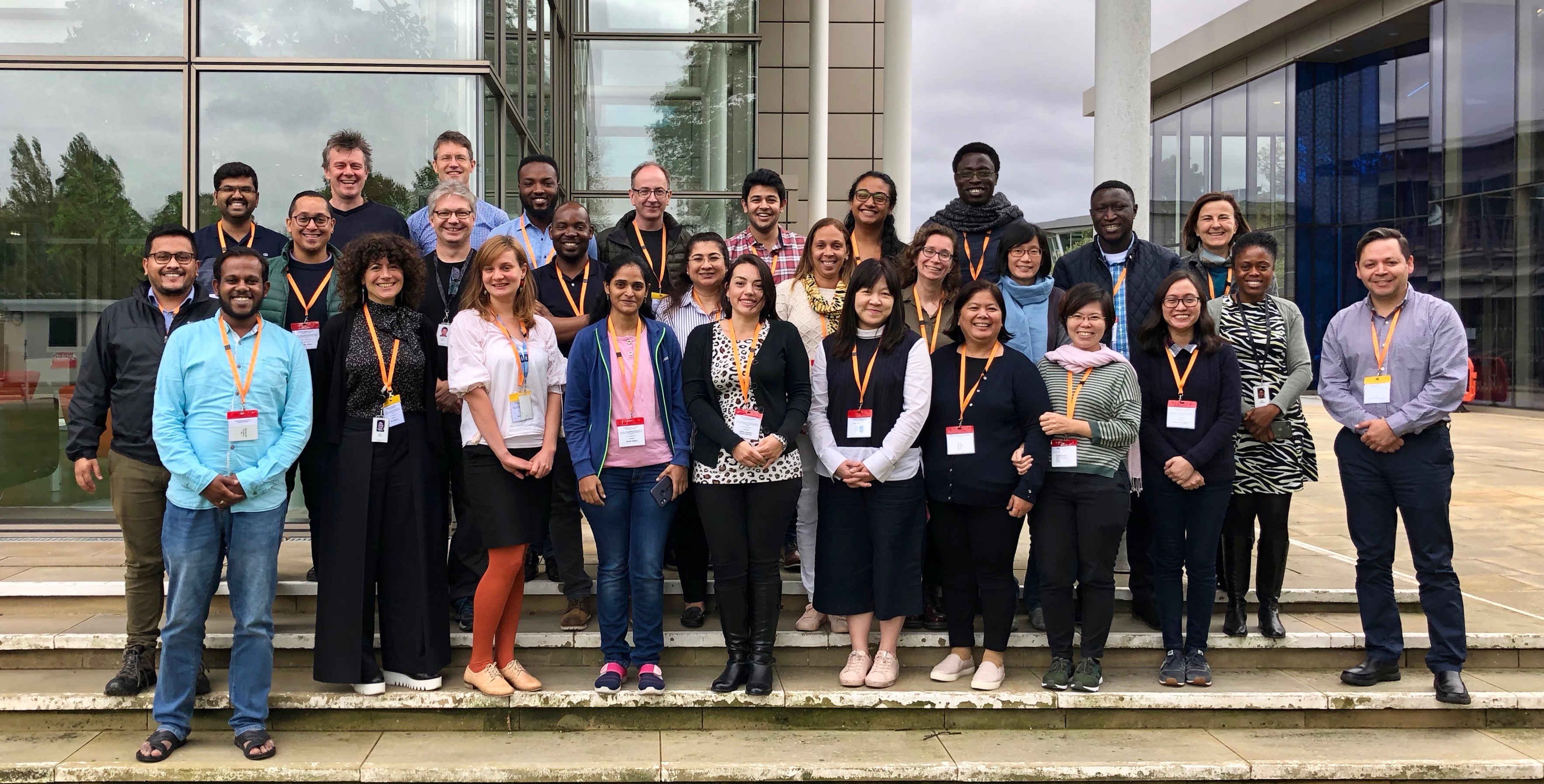
Genomic surveillance of antimicrobial resistance
New train-the-trainer course aims to improve global capacity and skills in low- and middle income-countries
A new course designed to develop and improve capacity and skills in genomic surveillance of antimicrobial resistance (AMR) in low- and middle-income countries brought together 18 scientists at the Wellcome Genome Campus last month, free of charge.
The train-the-trainer course is a collaboration between Wellcome Genome Campus Advanced Courses and Scientific Conferences (ACSC) and researchers from the Global Health Research Unit on Genomic Surveillance of AMR (GHRU) – an NIHR-funded programme of the Centre for Genomic Pathogen Surveillance established to bridge genomics, microbiology and big data to help tackle the global threat of AMR. The course content built on existing Advanced Learning and Training modules developed as part of ACSC’s Overseas Courses programme, combined with scientific and technical expertise from GHRU’s lab and bioinformatics teams.
The course welcomed to the Campus scientists from 12 low-and middle-income countries (LMICs), including the GHRU’s partner centres in Nigeria, Colombia, Philippines and India.

AMR affects the health and economic output of populations worldwide, but disproportionally burdens LMICs. One of the key objectives of the Global Action Plan developed by the World Health Organization (WHO) to tackle AMR is to strengthen the knowledge and evidence base through surveillance and research. However, capacity in whole genome sequencing and analysis and interpretation of genomic data remains limited within LMICs.
Dr Silvia Argimon, Genomic Epidemiologist and course trainer, Centre for Genomic Pathogen Surveillance
Training scientists to deliver knowledge and expertise directly to others within existing or newly established surveillance programmes in their own research and public health communities is a key strategy for building capacity worldwide. This course was a great opportunity to use ACSC’s resources and educational experience to support the GHRU’s goals to build genomic surveillance capacity in LMICs and grow a global network of AMR labs.

The week-long programme provided a combination of pedagogical training on fundamental principles and practices of teaching, along with hands-on exercises specifically designed around training others in the laboratory and bioinformatics workflows for generating and interpreting AMR surveillance data – all with a focus on discussion-based, interactive learning and the importance of collaboration and sharing data.
The training was augmented by keynote seminars from scientists involved in global AMR surveillance programmes, projects and resources, including the WHO’s Global Antimicrobial Resistance Surveillance System (GLASS).
As always, the setting of the Wellcome Genome Campus provided the ideal environment for social interaction and discussion, one that over the years has led to fruitful, new collaborations amongst course participants. By using our overseas-course funding model, and with co-funding from GHRU, we were able to provide the course free of charge and include travel bursaries for all participants.
A key thread running through the week was for participants to design their own courses and to consider the constraints and opportunities that will influence delivering onward training in their own countries. Application and benefit is a key test of any course, and we look forward to keeping in touch with everyone involved to see how their plans have led to new and effective training around the world.

Thank you to the team that was involved in putting together the course materials. It was a great course, a big thank you to the trainers. Thanks lastly to the selection committee for bringing together a vibrant group from across the globe – it was a great opportunity to make new friends and networks.
Course participant
